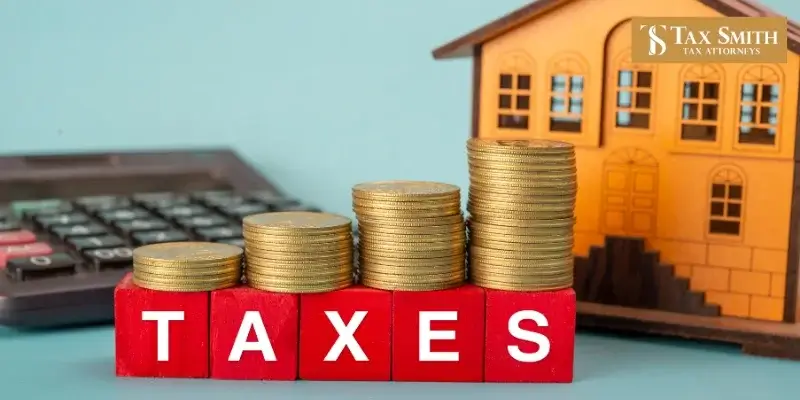A bank levy is a tool used by creditors to seize an unpaid debt directly from your bank account. It can be very stressful and financially destabilizing. Many individuals wonder, “Can a bank levy take all your money?” This depends on several factors, such as whether you have exempt income in your bank account, the size of your debt, and your financial situation. It may also depend on whether the levy was placed by a consumer creditor or the Internal Revenue Service (IRS).
Understanding Bank Levies Made by Creditors and the IRS
Many individuals in the U.S. have debts. In Q4 of 2024, households and nonprofits in the country had $20.8 trillion in liabilities. In Q3 of the same year, Florida had a debt-to-income ratio of 1.664. Other states’ debt-to-income ratios ranged from 1.969 to 0.504.
Many circumstances can prevent someone from fulfilling their required debt payments or making tax payments on time, and financial hardship can make paying the amount impossible. Unfortunately, if a person who owes a debt ignores this debt, it can lead to more serious situations, including a bank levy.

Most creditors have to get court approval to implement a bank levy. The creditor must file a claim against you in court, where they must prove certain facts about the debt and its value. If you respond to the court case, you can offer counterarguments or advocate for settling the debt in specific methods of payment. If you don’t answer the case, it is more likely that the court will award the creditor a bank levy.
At the end of fiscal year 2023, the IRS reported 11 million delinquent taxpayer accounts, after closing five million throughout the year. The IRS doesn’t have to get court approval; instead, it follows its own steps prior to implementing a levy. You can contact the IRS to dispute or request a release of the levy under the agency’s guidelines for doing so. If you don’t, the IRS will levy the money from your bank account.
What Is Exempt From a Levy for Consumer Creditors?
Even if a consumer creditor can levy your bank account, there are some sources of income they cannot seize. These include federal benefits, such as:
- Social Security and Supplemental Security Income benefits
- Federal emergency disaster assistance
- Railroad retirement benefits
- Federal student aid
- Veterans’ benefits
- Annuities and survivors’ benefits related to military service
- Office of Personnel Management benefits
What Are the Levy Limitations for the IRS?
Delinquent taxes do not have the same exemptions for levies and garnishments as other types of creditor claims. However, there are still limitations to what the IRS can seize.
The IRS can only seize property through a bank or other levy if the agency expects the proceeds to support paying off your tax debt. There are also limitations on the IRS’s ability to seize your primary residence and specific business assets. The agency can’t seize the following in a levy:
- Minimum weekly exempt income
- Unemployment benefits
- Workers’ compensation
- Court-ordered child support income
- Some annuity and pension benefits
- Disability payments related to service
- Payments for certain public assistance
- Job Training Partnership Act assistance
- Necessary schoolbooks, clothing, and provisions
- A set amount of fuel
- Undelivered mail
- Furniture and personal household effects
- Set amounts of books and tools used for a profession
- Federal payments, except through the Federal Payment Levy Program
These exemptions are more applicable for levies placed on your income or property. A levy on your bank account may operate differently. Talk with an experienced Jacksonville bank levy attorney to determine how a bank levy may affect you. They can also see if any of the assets in the account are considered exempt.

FAQs About Bank Levy Taking All Your Money
How Do I Protect My Bank Account From a Levy?
You could mitigate the effect a levy has on your bank account, but the most effective way to protect your account from a levy is to pay off the debt that the levy is for. If you don’t do this or contact the creditor to determine other options, there is little you can do to prevent a levy when it is court-approved. Some types of income are exempt from a levy, however.
Can the IRS Take All Your Money From Your Bank Account?
The IRS can take all the money from your bank account, as the agency can take the entire amount of your unpaid tax debt, penalties, and interest. However, some property may be exempt from seizure, even from a bank account. This includes:
- Unemployment benefits
- Certain disability benefits are connected to service
- Workers’ compensation
- Specific annuity and pension benefits
- Some public assistance benefits
- Income for court-ordered child support
An IRS tactics attorney in Jacksonville, FL, can explain what is exempt from an IRS bank levy.
Can I Deposit Money After a Bank Levy?
Yes, you can deposit money in a bank account after a bank levy. Typically, the levy, when placed by the IRS, doesn’t impact the funds that you deposit after the date the levy was put into effect. However, if the funds that were in your account did not cover the full amount of the debt owed, the IRS or other creditors may levy on other bank accounts.
How Long Does It Take to Reverse a Bank Levy?
If you negotiated the release of a bank levy, the IRS states it may take up to 30 days for this release to be processed after you have satisfied the liability. A levy release only occurs if you get in contact with the IRS to pay the debt, agree on an alternate payment plan, or prove that the levy causes you financial hardship. If the funds were already removed from your account, you might get those funds returned.
Advocating to Release a Levy With TaxSmith, LLC
There are options to appeal an IRS bank levy or petition for its release. You could negotiate alternate payment methods with either the IRS or other creditors, such as a payment plan. If the funds were already seized from your account, there may be specific situations where you can recover them.
At TaxSmith, LLC, we have decades of experience in dealing with the IRS and managing bank levies. We can provide advice about your unique situation and explore options to prevent a bank levy from being implemented. Our goal is to work to address our clients’ tax debt. Contact our firm today.








